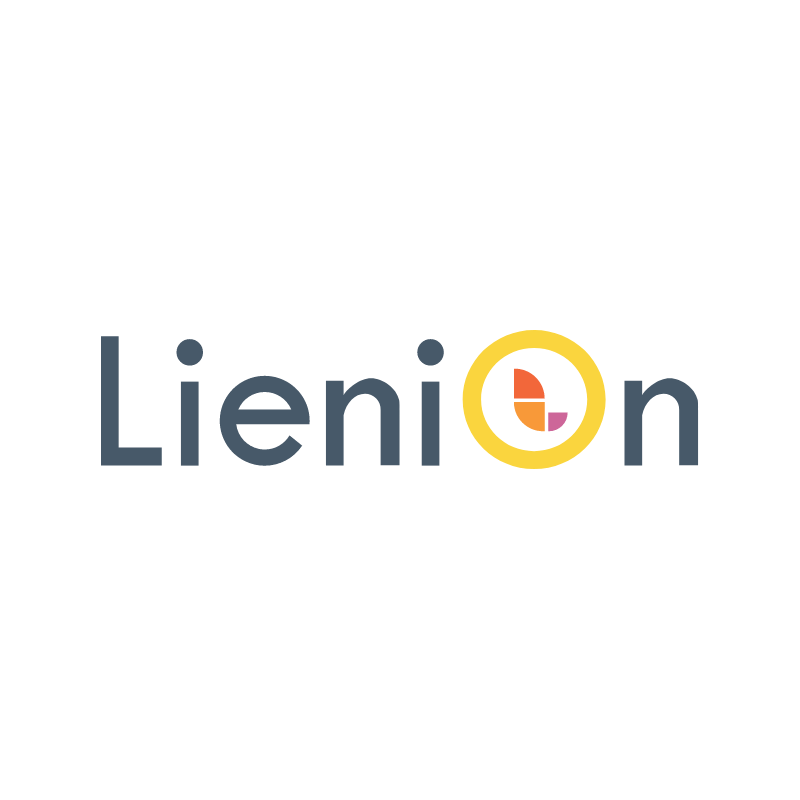Description

Lienion

Steelray Project Analyzer
Comprehensive Overview: Lienion vs Steelray Project Analyzer
Certainly! Below is a comprehensive overview of Lienion and Steelray Project Analyzer, including their primary functions, target markets, market share comparisons, user base, and key differentiating factors.
Lienion
a) Primary Functions and Target Markets
Primary Functions: Lienion is a comprehensive project management tool that offers features such as task management, time tracking, collaboration tools, and resource management. It is designed to streamline workflows, enhance team collaboration, and improve project efficiency. Lienion supports a range of methodologies, allowing users to tailor the tool to fit their specific project management needs.
Target Markets: Lienion primarily targets small to medium-sized enterprises (SMEs) and teams within larger organizations that require robust project management solutions. These may include sectors such as IT, marketing, consulting, and any team-oriented environments that benefit from a collaborative project management approach.
b) Market Share and User Base
Lienion is typically more niche compared to industry giants like Asana or Monday.com. While it doesn't dominate the market, it caters specifically to organizations seeking flexibility and adaptability in their project management tools. Its user base often consists of teams who need customizable solutions without the complexities or high costs of larger platforms.
c) Key Differentiating Factors
- Customization and Flexibility: Lienion offers a high degree of customization, allowing users to tailor the platform to their specific workflow and methodologies.
- Integrations: It integrates smoothly with a range of third-party applications, enhancing its value as a central operational hub for project management.
- User-Friendly Interface: Lienion emphasizes a simple and intuitive user interface, making it accessible even for teams without a dedicated project manager or extensive PM training.
Steelray Project Analyzer
a) Primary Functions and Target Markets
Primary Functions: Steelray Project Analyzer specializes in the analysis and reporting of project schedules. It focuses on improving project management by identifying potential schedule risks, compliance with best practices, and offering insights for optimizing project timelines. The tool is particularly powerful for analyzing schedules made in Microsoft Project, Primavera, and other scheduling tools.
Target Markets: Steelray Project Analyzer primarily targets large enterprises, particularly in industries like construction, engineering, defense, and aerospace, where project scheduling, compliance, and risk management are critical. It is well-suited for project managers and teams looking to ensure efficient and compliant scheduling processes.
b) Market Share and User Base
While not as mainstream as some larger project management suites, Steelray Project Analyzer has carved out a significant niche in sectors that require rigorous schedule analysis. Its user base often includes project managers, schedulers, and PMOs in environments with complex and compliance-focused projects.
c) Key Differentiating Factors
- Advanced Schedule Analysis: Steelray Project Analyzer offers in-depth analysis capabilities not typically found in standard project management tools. It aids in identifying and mitigating potential scheduling issues.
- Compliance and Standards: The tool ensures projects meet industry standards such as DCMA and others, which is critical for government and other highly regulated industries.
- Reports and Insights: It provides detailed and customizable reports, enabling better decision-making regarding project timelines and resource allocation.
Comparison Summary
Lienion and Steelray Project Analyzer cater to different aspects of project management. Lienion is more suited for general project management needs with a focus on customization and collaboration, making it ideal for SMEs and dynamic teams. In contrast, Steelray Project Analyzer is specialized for schedule analysis and compliance, targeting industries where these factors are crucial. In terms of market share and user base, Lienion might appeal to a broader segment within smaller enterprises, while Steelray is favored in specialized environments with stringent scheduling and compliance needs. Thus, their differentiating factors lie primarily in their functionalities and target market focus.
Contact Info

Year founded :
2016
+91 91089 44888
Not Available
Belgium
http://www.linkedin.com/company/lienion

Year founded :
Not Available
Not Available
Not Available
Not Available
Not Available
Feature Similarity Breakdown: Lienion, Steelray Project Analyzer
When comparing features between Lienion and Steelray Project Analyzer, we need to consider various aspects such as core functionalities, user interface design, and unique offerings. While specific features may vary over time with updates, here’s a general breakdown based on their known capabilities:
a) Core Features in Common:
-
Project Management: Both tools offer facilities to manage projects, including task planning, scheduling, and resource allocation.
-
Reporting and Dashboards: Both provide reporting capabilities and dashboards to offer insights into project progress and performance metrics.
-
Collaboration Tools: Both platforms facilitate team collaboration through shared workspaces or by enabling multiple users to work on the same project data simultaneously.
-
Data Import/Export: They support data import and export from other project management tools, facilitating integration with existing systems.
-
Risk Management: Features for identifying, analyzing, and mitigating risks are present in both software.
b) User Interface Comparison:
-
Lienion: Generally designed to be user-friendly and intuitive, with a focus on ease of use for small to medium-sized teams. Its interface tends to prioritize straightforward navigation and minimalistic design, allowing users to focus on workflow and task management.
-
Steelray Project Analyzer: Offers a more technical interface tailored for project analysis and assessment. It provides more in-depth analysis visuals and might require a steeper learning curve, ideally suited to larger teams or projects that require detailed inspection of schedules and project compliance against industry standards.
c) Unique Features:
- Lienion:
- All-in-One Platform: Beyond project management, Lienion might integrate additional business processes, such as CRM or payroll, into its ecosystem, offering a holistic solution for businesses.
- Customizable Workflows: Provides tools for creating highly customizable workflows that can be tailored to specific business processes.
- Steelray Project Analyzer:
- Schedule Quality Assessment: Offers unique features geared towards analyzing project schedules against best practice guidelines such as DCMA 14-Point Assessment.
- Advanced Metrics and Analysis: Computes various schedule health metrics and comes with tools specifically designed for project schedule optimization and risk evaluation.
- Integration with Microsoft Project and Primavera: Provides specialized integration and analysis for schedules created in industry-leading tools like Microsoft Project and Oracle Primavera.
These points are subject to changes in product development and may vary based on software version updates. Therefore, always refer to the latest product documentation or contact software providers for the most current feature sets and capabilities.
Features

Not Available

Not Available
Best Fit Use Cases: Lienion, Steelray Project Analyzer
Lienion:
a) For what types of businesses or projects is Lienion the best choice?
Lienion is a versatile project management and collaboration tool designed to cater to a wide range of businesses and project types. It is particularly well-suited for:
- Small to Medium Enterprises (SMEs): Lienion is often favored by SMEs due to its affordability and user-friendly interface, which simplifies project management without requiring extensive technical knowledge.
- Startups: For startups that require flexibility and scalability, Lienion offers an adaptable platform to manage projects as they grow.
- Agile Teams: Businesses that adopt agile methodologies can benefit from Lienion’s agile-focused features such as Kanban boards, sprints, and task prioritization.
- Creative Agencies: Companies in the creative sector, like marketing or design agencies, can use Lienion to streamline workflow and enhance collaboration across projects.
- Remote or Dispersed Teams: Organizations with remote team members can utilize Lienion for its cloud-based capabilities, facilitating seamless communication and project tracking from anywhere.
Steelray Project Analyzer:
b) In what scenarios would Steelray Project Analyzer be the preferred option?
Steelray Project Analyzer is a specialized tool designed for detailed project schedule analysis and compliance. It is best suited for scenarios that require rigorous schedule management:
- Large-scale Projects: Ideal for complex, large-scale projects where meticulous schedule and timeline analysis are crucial.
- Government Contracts: Often used by organizations involved in government contracts that require strict adherence to standards like DCMA 14-Point Assessment.
- Construction Industry: Companies in construction benefit from the in-depth schedule analysis to ensure timeline adherence and resource allocation.
- Engineering Projects: In engineering, where planning and execution are tightly controlled, Steelray helps ensure compliance with industry standards.
- Project Management Offices (PMOs): PMOs responsible for maintaining the quality and timeliness of schedules across multiple projects would find Steelray indispensable.
Industry Verticals and Company Sizes:
d) How do these products cater to different industry verticals or company sizes?
-
Lienion:
- Industry Verticals: With its flexible features, Lienion can cater to various industries such as technology, marketing, consulting, and non-profits. Its adaptability makes it a versatile choice across different verticals needing effective collaboration and agile project management.
- Company Sizes: Primarily targeting SMEs and startups, Lienion’s ease of use and cost-effectiveness provide smaller companies the tools to manage projects without requiring large budgets or resources.
-
Steelray Project Analyzer:
- Industry Verticals: Steelray is tailored for industries that prioritize compliance and detailed schedule management, such as construction, defense, aerospace, and engineering. It helps maintain adherence to regulatory standards and detailed project timelines.
- Company Sizes: It is often utilized by larger organizations or those managing substantial projects, such as Fortune 500 companies or government contractors, due to its focus on compliance and sophisticated analysis features.
Overall, Lienion and Steelray serve notably different needs, making them complementary in environments where both general project management and detailed project analysis are required.
Pricing

Pricing Not Available

Pricing Not Available
Metrics History
Metrics History
Comparing teamSize across companies
Conclusion & Final Verdict: Lienion vs Steelray Project Analyzer
To provide a comprehensive conclusion and final verdict on Lienion and Steelray Project Analyzer, let's break down each product's value, pros and cons, and recommendations for prospective users.
a) Overall Value
Steelray Project Analyzer generally offers the best overall value for most standard project management and scheduling analysis environments. Its robust feature set, integration capabilities with Microsoft Project and Primavera, and extensive analysis and reporting tools make it an excellent choice for larger enterprises and users who require detailed, reliable project analytics.
Lienion, on the other hand, presents a unique value proposition for businesses that are looking for more innovative or customized collaboration software solutions rather than just project scheduling analytics. It may be more valuable for smaller companies or teams who prioritize agility and innovation in their project management practices.
b) Pros and Cons
Steelray Project Analyzer:
Pros:
- Comprehensive analysis and reporting tools tailored for project schedule quality.
- Seamless integration with major project management software like Microsoft Project and Primavera.
- User-friendly interface aimed at project managers and schedulers.
- Reliable customer support and documentation.
Cons:
- May be too feature-rich or complex for small teams with less rigorous analysis needs.
- Higher cost, which might not be justified for firms with simpler project management requirements.
- Primarily focused on schedule analysis rather than full project management or collaboration.
Lienion:
Pros:
- Innovative approach to collaboration and integration capabilities.
- More flexible and customizable, which is advantageous for creative solutions.
- Typically easier for smaller teams to adopt and use effectively.
- Cost-effective for businesses with limited budgets or simpler needs.
Cons:
- Lack of advanced scheduling analysis and reporting features compared to Steelray.
- May require additional configurations for detailed project management analytics.
- May not integrate as seamlessly with existing enterprise-level project management tools.
c) Recommendations
For users deciding between Lienion and Steelray Project Analyzer, here are some recommendations:
-
Choose Steelray Project Analyzer if:
- You require advanced, in-depth project schedule analysis and quality control.
- Your organization uses software like Microsoft Project or Primavera extensively.
- You have a larger team or enterprise-level requirements that justify the need for a dedicated schedule analysis tool.
- The budget is less of a constraint compared to the need for sophisticated features.
-
Choose Lienion if:
- You seek more flexible, collaborative, and innovative project management solutions.
- Your team prioritizes agility and is comfortable with configuring tools to fit your workflow.
- You operate a small to medium-sized business or have simpler project management requirements.
- Cost is a significant factor, and you prefer a more lightweight solution.
Ultimately, the choice between Lienion and Steelray Project Analyzer depends on the specific needs, budget, and strategic priorities of the user or organization. Users should consider running trials or consulting with representatives of each product to better understand how each can address their unique challenges before making a decision.
Add to compare
Add similar companies



